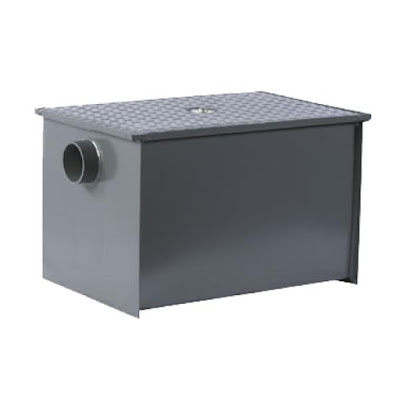Things to note about grease trap
What is a grease trap? What does it do? What are the benefits of using a grease trap? And how frequently does a grease trap need to be cleaned? If you have all these questions, please read this article for answers. Also, if you are searching for a professional service for grease trap removal or grease trap pumping in Islip, please refer to the concluding part of the article.
Content of the article
- Definition of grease trap
- Functions of a grease trap
- Why choose a grease trap?
- How frequently does a grease trap need to be cleaned?
- Concluding remarks - Find professional service for grease trap pumping in Islip
Definition of grease trap
A grease trap is a plumbing device that is specifically designed to capture grease and solid fragments before they are released into municipal water and sewer systems. It is typically installed in commercial kitchens and restaurants to prevent blockages, odors, and other frustrating plumbing problems. Grease traps may take different forms, such as small under-the-sink models or large in-ground systems. In general, they work by separating the waste liquids by gravity, with heavier grease and food scraps sinking to the bottom of the trap while water and less viscous substances continue to flow through to the plumbing. While grease traps may require regular cleaning and maintenance, their benefits to both the environment and the businesses that use them are invaluable.
Functions of a grease trap
Have you ever wondered what happens to all the grease that goes down the drain in commercial kitchens? To prevent it from clogging up pipes and causing environmental hazards, grease traps are required by law in most areas. But what exactly do these devices do? Grease traps function by separating grease, oils, and fats from the water that flows through them. The trapped grease is then collected and disposed of properly. Not only do grease traps help prevent plumbing issues, but they also protect our waterways and natural habitats from pollution caused by grease accumulation. So next time you enjoy a meal at your favorite restaurant, you can thank the grease trap for keeping things running smoothly.
Why choose a grease trap?
Grease traps may not be the most glamorous topic, but they are a crucial part of any commercial kitchen or restaurant. Without them, the build-up of grease and oil in pipes can cause clogs and backups, leading to costly repairs and downtime. Not to mention the added risk of insurance claims for damage caused by grease spills. Choosing a grease trap is not only necessary but can also be a strategic investment in the longevity and success of your business. With proper maintenance and cleaning, a grease trap can minimize odors, prevent blockages, and provide a safe and clean environment for your staff and customers.
How frequently does a grease trap need to be cleaned?
Grease traps are a vital component of any commercial kitchen, but it can be easy to forget about cleaning them amidst the hustle and bustle of daily operations. However, neglecting to clean your grease trap can lead to a variety of headaches, from foul odors to clogged sewer lines. So, how often should you be scheduling this important task? While there is no one-size-fits-all answer, the general consensus is that grease traps should be cleaned at least once every three months. However, larger establishments may need more frequent cleanings, and it's always a good idea to consult with a professional to determine what schedule is best for your specific system. By prioritizing regular cleanings, you can ensure that your kitchen runs smoothly and stays in compliance with local regulations.
Concluding remarks - Find professional service for grease trap pumping in Islip
To learn more about grease traps or to find professional service for grease trap pumping in Islip, or about grease trap removal, please visit the website.



Comments
Post a Comment